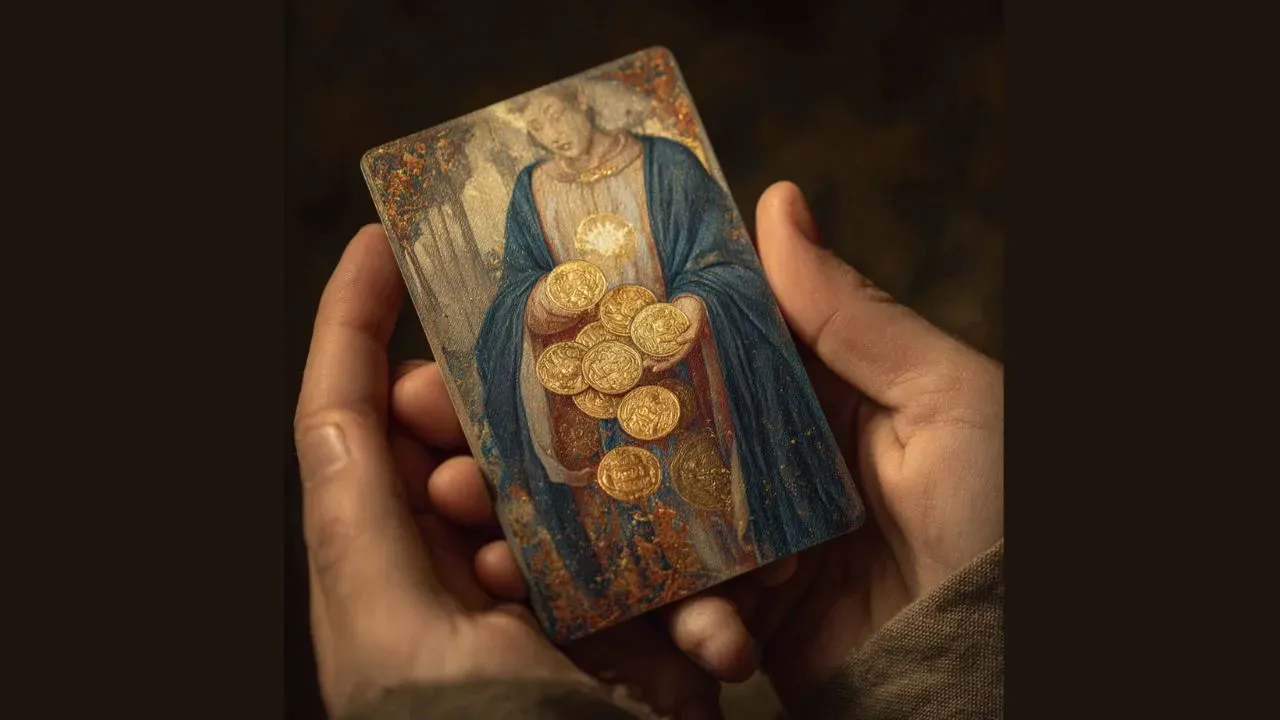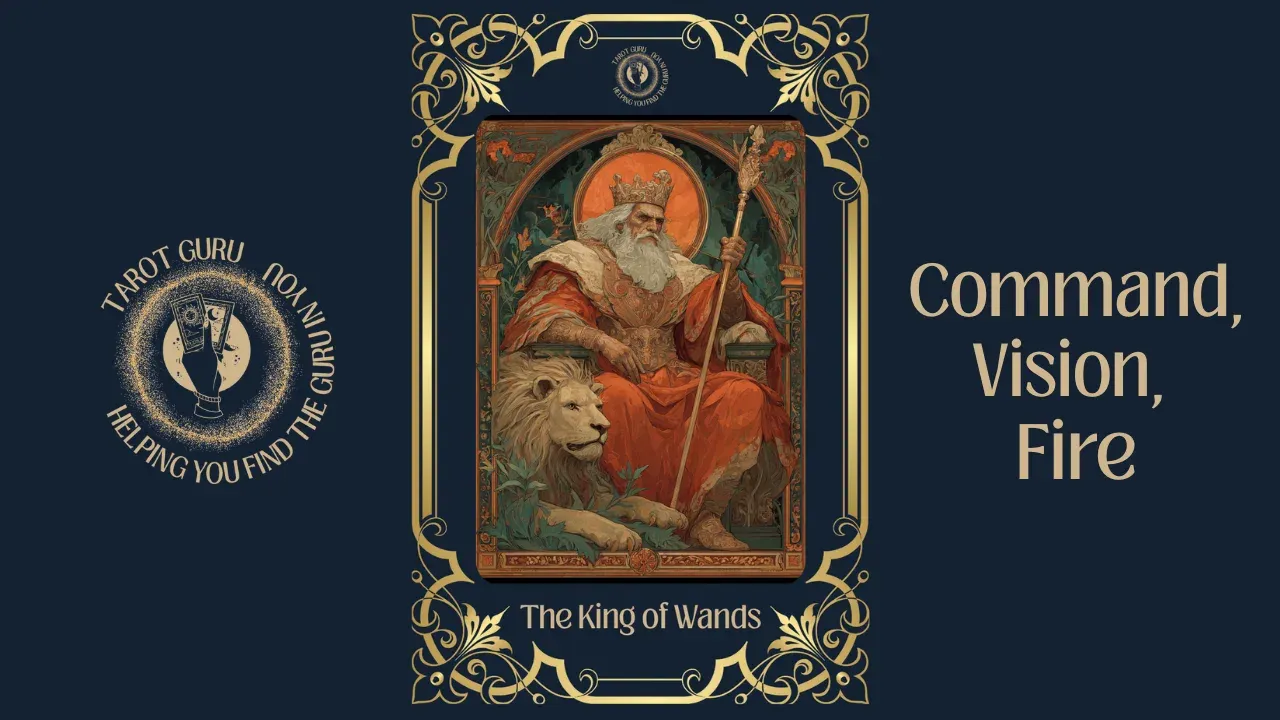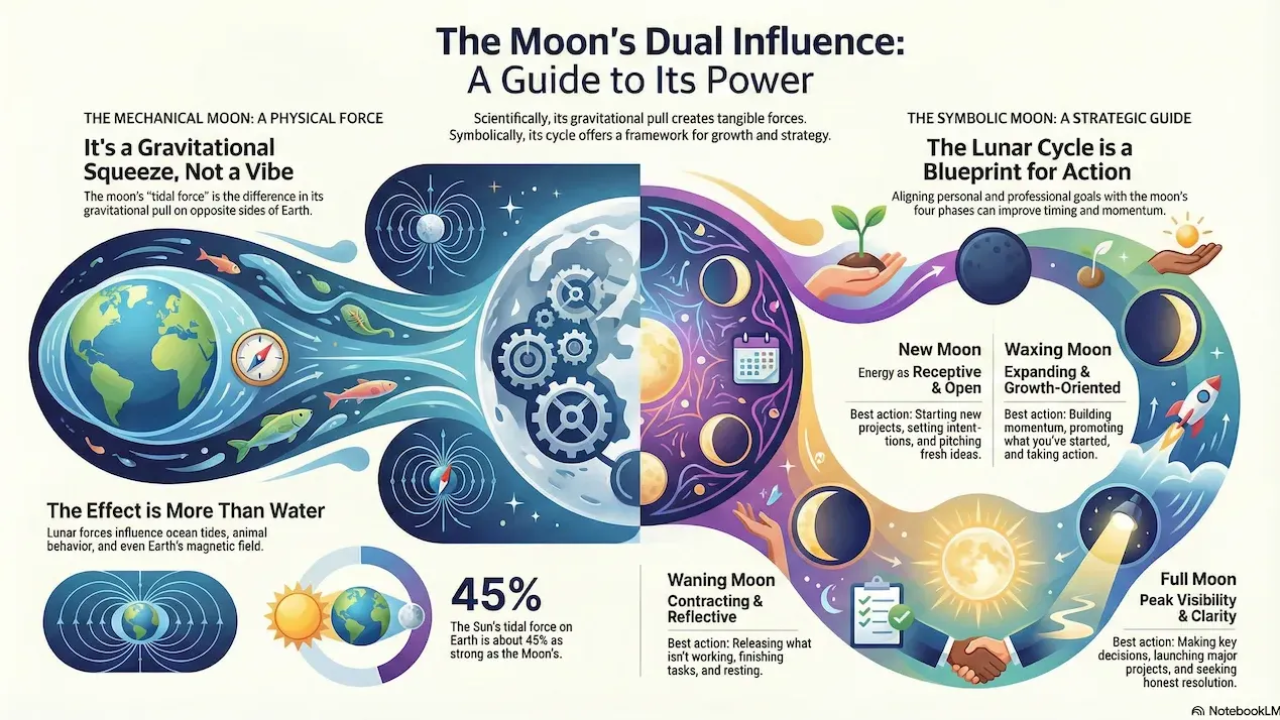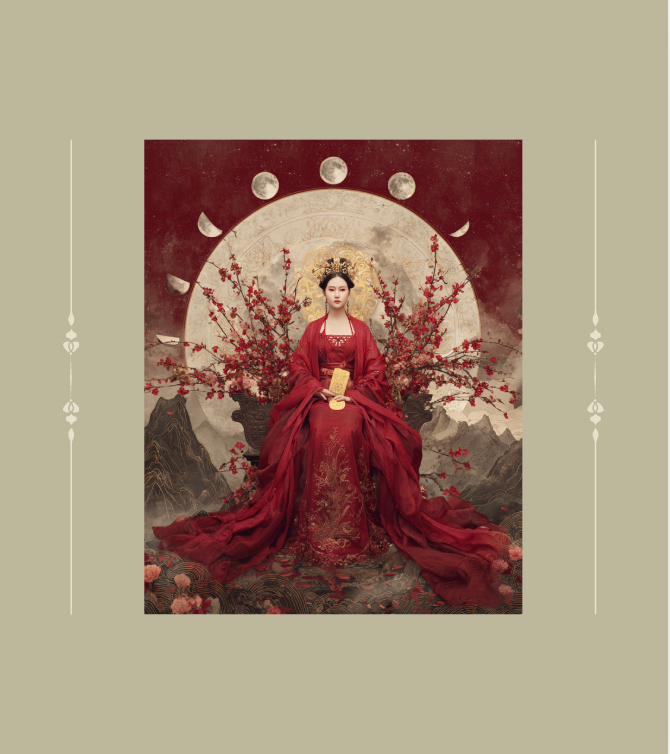My Biggest Money Block and How Tarot Showed It to Me

I was five or six years old, watching a car commercial with the kind of wide-eyed wonder only a kid in the golden age of advertising could muster. The car was sleek, beautiful, impossibly shiny. I wanted it the way children want things—purely, without calculation or shame.
My grandfather looked at me and said: "You'll never be able to afford a car like that. You'll always be like me—shopping second-hand."
He wasn't trying to be cruel. He was trying to protect me.
But what I absorbed in that moment wasn't protection. It was a rule: Don't want too much, and you won't be disappointed when you don't get it.
The Belief I Didn't Know I Was Carrying
My grandparents raised me. They lived through the Great Depression, and that experience shaped everything—how they spent, saved, and thought about money. Scarcity wasn't just a mindset for them. It was survival.
And I inherited it without question.
For years, I didn't realize that belief was running my decisions. I thought I was being practical. Realistic. Smart.
But what I was actually doing was capping my own life to avoid the pain of wanting something I might not get.
I'd talk myself out of opportunities before fully considering them. I'd settle for "good enough" instead of reaching for what I actually wanted. When things did go well, I'd feel guilty—like I'd taken more than my share.
I was living inside my grandfather's rule, decades after the Depression ended, in a completely different economy. And I didn't even see it.
The Card That Changed Everything
I was doing a tarot reading about money—trying to figure out why I felt stuck even though logically, I was doing fine. I pulled the Eight of Wands.
Eight of Wands is momentum. Swift movement. Nothing holding you back. Energy accelerating forward.
But I looked at that card and felt... resistance.
I should have felt excited. Instead, I felt unsafe. Like if I let things move that fast, I'd lose control. Like wanting momentum was setting myself up for disappointment.
And that's when I heard my grandfather's voice in my head: "You'll never afford that. You'll always be like me."
Suddenly, I saw it clearly. I wasn't being practical. I was pre-emptively disappointing myself so life couldn't do it first.
The belief wasn't mine. It was his. And it had been running my financial decisions for decades without my conscious permission.
Giving the Belief Back
Here's what I realized: That rule kept my grandfather safe during the Depression. But it was suffocating me in a completely different reality.
I didn't need to reject him or be angry. I just needed to recognize that his survival strategy didn't have to be mine.
So I gave the belief back. Not with resentment—with gratitude for what it did for him, and clarity that it no longer served me.
And I chose a new rule: "For every dollar I spend, ten come back to me."
What That Actually Means (It's Not Manifestation Woo)
This isn't about magical thinking. It's about strategic investment thinking.
I calculate margins for a living. I evaluate ROI on everything. When I spend a dollar, I ask: What's the return on this?
I'm always hunting for deals with quick money turns. I look at every expense as either an investment that grows or a cost that drains. And I make decisions accordingly.
My grandfather's rule was: Don't spend—you'll lose.
My rule is: Every dollar spent is a seed that returns 10x when planted wisely.
That's not reckless spending. It's the opposite of hoarding. It's regenerative abundance—money as a tool that works for you, not something you grip out of fear.
The Irony (And the Freedom)
Here's the part that still makes me smile: I've bought new cars most of my life. Some I keep forever, but new cars have never been a financial challenge for me.
The exact thing my grandfather said I'd never afford? I stopped even thinking about it as a limitation.
Not because I was trying to prove him wrong. But because once I released his belief, I stopped letting his fear dictate my ceiling.
Understanding Pentacles Differently
Once I understood that my emotions were creating my financial reality, everything shifted. If you're interested in this concept, read about why Pentacles reveal emotions, not bank balances. It's the insight that changed how I read cards for money entirely.
What I Want You to Know
If you're carrying beliefs about money that came from your parents, grandparents, or the culture you grew up in, here's what matters:
Those beliefs aren't your fault. But they are your responsibility to examine.
Tarot doesn't tell you what to believe. It shows you what you're already believing—often without realizing it.
When you pull cards about money and feel discomfort, that's not the cards being "negative." That's recognition. Your subconscious seeing a pattern it's been running on autopilot.
You can honor the people who came before you without repeating their limitations. Depression-era scarcity was survival for them. It doesn't have to be your operating system.
You're allowed to make new rules.
How to Work With Your Own Inherited Money Beliefs
If this story resonates, here's where to start:
1. Identify what you inherited
Use our Money Block Journaling Prompts to trace where your beliefs came from. Prompt 2 (The Inherited Script) is specifically designed for this.
2. Learn the method
Read How to Use Tarot to Uncover Your Money Mindset to understand the foundational approach.
3. Understand why it works
If you need the psychology and neuroscience behind this, start with Why Tarot Works for Money Mindset (Science + Spirit).
4. Take the assessment
Our free Hidden Money Block Assessment helps you identify which of the 7 common patterns you're carrying.
5. Go deeper if you're ready
The Breaking Financial Blocks with Tarot course ($333) is the complete system I used—and still use when new patterns surface.
Build the Practical Skills Too
Shifting your beliefs is the inner work. But you also need practical money skills:
Track your spending consciously:
You Need A Budget helps you see where old beliefs still show up in your financial decisions.
Learn to invest without fear:
Vanguard's education resources teach straightforward wealth-building.
Get support if you need it:
National Foundation for Credit Counseling offers free, judgment-free guidance.
Read the research:
Mind Over Money by Dr. Brad Klontz explains the science behind inherited money scripts.
Check our full Money Mindset Reading List for more books that bridge consciousness and practical skills.
The Real Work: Choosing Your Own Rules
My grandfather's rule kept him alive during the Depression. I'm grateful for that. It's why I exist.
But I don't live in the Depression. And neither do you.
The beliefs that kept our ancestors safe can become the cages that keep us small—if we don't examine them consciously.
Tarot gave me a mirror. The Eight of Wands showed me I was still gripping a rule from another era. Once I saw it clearly, I could choose differently.
You can too.
What rule are you ready to give back?
Disclaimer
This content explores personal experience with money psychology, not financial advice. For budgeting, investing, or financial planning, consult the resources above or a qualified financial professional. Tarot is a tool for self-reflection, not a substitute for financial literacy or professional guidance.
Disclosure: Some book links on this page are affiliate links through Bookshop.org, which supports independent bookstores. If you purchase through these links, we may earn a small commission at no extra cost to you. We only recommend books we genuinely believe will support your growth.
Stop Googling Card Meanings - Start Reading with Confidence
Get my beginner-friendly $22 course and learn to trust your intuition instead of memorizing meanings. Practice with simple spreads and build confidence without constantly looking things up




